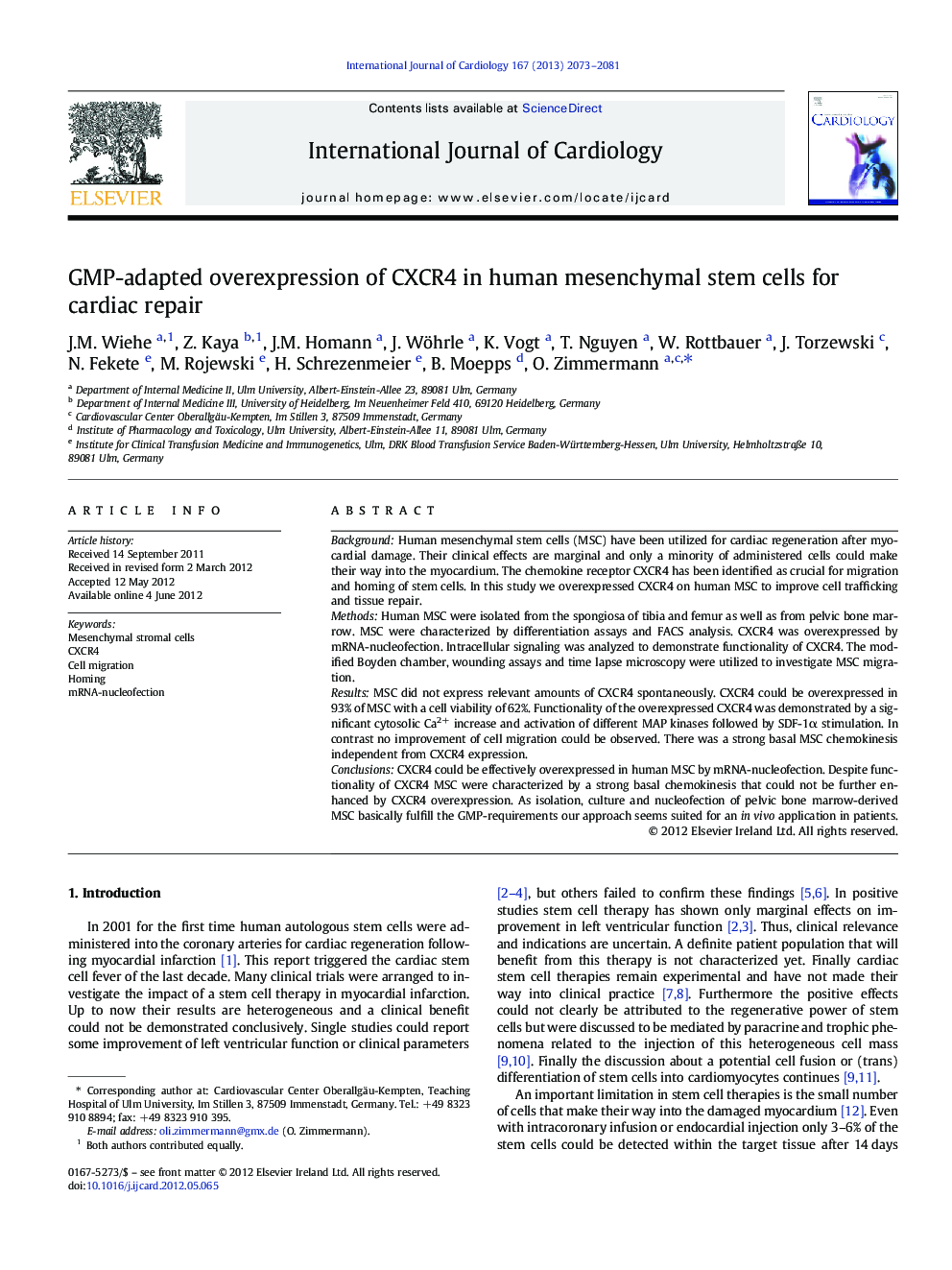| Article ID | Journal | Published Year | Pages | File Type |
|---|---|---|---|---|
| 5977238 | International Journal of Cardiology | 2013 | 9 Pages |
BackgroundHuman mesenchymal stem cells (MSC) have been utilized for cardiac regeneration after myocardial damage. Their clinical effects are marginal and only a minority of administered cells could make their way into the myocardium. The chemokine receptor CXCR4 has been identified as crucial for migration and homing of stem cells. In this study we overexpressed CXCR4 on human MSC to improve cell trafficking and tissue repair.MethodsHuman MSC were isolated from the spongiosa of tibia and femur as well as from pelvic bone marrow. MSC were characterized by differentiation assays and FACS analysis. CXCR4 was overexpressed by mRNA-nucleofection. Intracellular signaling was analyzed to demonstrate functionality of CXCR4. The modified Boyden chamber, wounding assays and time lapse microscopy were utilized to investigate MSC migration.ResultsMSC did not express relevant amounts of CXCR4 spontaneously. CXCR4 could be overexpressed in 93% of MSC with a cell viability of 62%. Functionality of the overexpressed CXCR4 was demonstrated by a significant cytosolic Ca2+ increase and activation of different MAP kinases followed by SDF-1α stimulation. In contrast no improvement of cell migration could be observed. There was a strong basal MSC chemokinesis independent from CXCR4 expression.ConclusionsCXCR4 could be effectively overexpressed in human MSC by mRNA-nucleofection. Despite functionality of CXCR4 MSC were characterized by a strong basal chemokinesis that could not be further enhanced by CXCR4 overexpression. As isolation, culture and nucleofection of pelvic bone marrow-derived MSC basically fulfill the GMP-requirements our approach seems suited for an in vivo application in patients.
